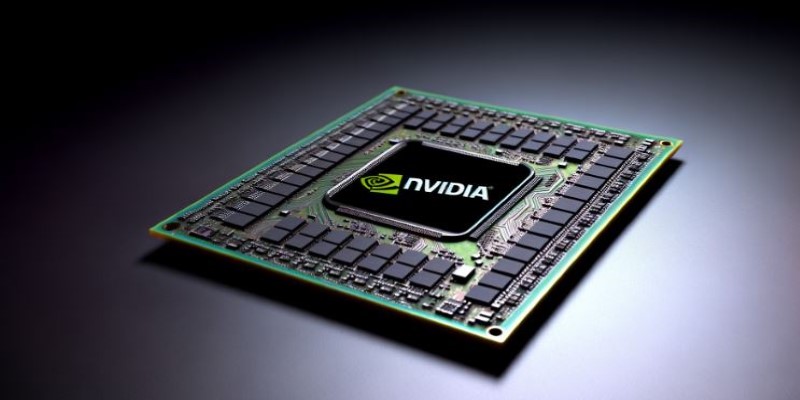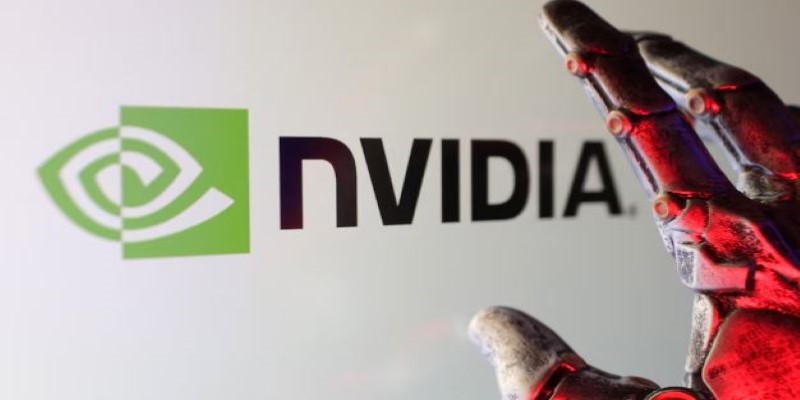Advertisement
Nvidia has made a significant move by producing AI chips tailored to the Chinese market. This decision comes amid ongoing tensions between the US and China over trade restrictions and technological competition. As one of the world's leading semiconductor companies, Nvidia's strategy in China is crucial to maintaining and expanding its market dominance. But what does this mean for the AI landscape within China and globally?
The decision to manufacture China-specific AI chips raises questions about the future of AI development and geopolitics. Will this move deepen the rift between China and the West, or will it set the stage for a new era of collaboration? Let’s explore how Nvidia’s China-focused chip production might shape the tech world.
Nvidia has been the leader in AI hardware for many years, with their GPUs (Graphics Processing Units) being the foundation for all AI applications. From machine learning to deep learning and data processing, Nvidia's GPUs are crucial in processing the staggering amounts of data needed to drive today's AI machines. This has placed Nvidia as a dominant force in the AI chip market, with businesses everywhere depending on their state-of-the-art technology.
Still, geopolitical issues have been shifting the dynamics over recent years. The US and China have been engaged in a technology cold war, where both countries have been cutting each other's access to critical tech, particularly semiconductors; for Nvidia, that has meant working its way through an increasingly sophisticated world where global competition and national interests intersect. Consequently, Nvidia's move to manufacture AI chips exclusively for China appears to be strategic in maintaining its grip on one of the globe's most valuable tech markets.
Nvidia's decision to tailor its AI chips for China is deeply tied to the country's massive investment in AI research and development. China is fast becoming a global leader in AI, with the government pouring resources into developing cutting-edge technologies. For Nvidia, staying relevant in this market means adapting to local needs while navigating the complex regulatory landscape. The production of China-specific AI chips allows Nvidia to circumvent some of the barriers placed on its technology, ensuring it remains a key player in this critical market.

China is known for its large-scale manufacturing capabilities and a booming tech ecosystem. Companies in China, from startups to giants like Baidu and Alibaba, increasingly rely on AI to drive innovation across e-commerce, healthcare, and autonomous vehicles. This creates an enormous demand for AI chips capable of processing vast amounts of data quickly and efficiently. By producing chips tailored to these needs, Nvidia is positioning itself as a crucial partner for Chinese companies looking to scale their AI operations.
Introducing China-specific AI chips could have far-reaching implications for Nvidia's global strategy. On one hand, it allows the company to strengthen its position within the Chinese market, where it faces fierce competition from local companies such as Huawei and SMIC (Semiconductor Manufacturing International Corporation). By offering customized solutions for Chinese firms, Nvidia can build deeper relationships with key regional players, making it harder for local competitors to dominate the market.
On the other hand, Nvidia's decision could fuel the ongoing technological divide between China and the West. As the US government continues to restrict the export of high-tech goods to China, Nvidia's move to create AI chips specifically for China may be seen as a sign of defiance. While the company must follow the regulations set by the US, it also needs to cater to the demands of the Chinese market. The complexity of balancing these competing interests adds another layer of strategy for Nvidia as it seeks to maintain its leadership in AI hardware.
This also has broader implications for the global semiconductor industry. The trade tensions between the US and China have already led to disruptions in the supply chain, with companies seeking alternative sources of chips and manufacturing capabilities. Nvidia’s approach could signal the need for more companies to adapt their products for specific markets, leading to more regionalized chip production and less global standardization. This shift could impact everything from pricing to availability, and it will be interesting to see how it plays out in the coming years.
Nvidia's move to produce China-specific AI chips is just one example of how the intersection of geopolitics and technology is reshaping the future of AI development. As countries compete for technological dominance, companies like Nvidia must adapt to the ever-changing landscape. The trade war between the US and China has already led to significant shifts in the semiconductor industry, and the production of specialized AI chips for China could accelerate this trend.

It's important to note that while Nvidia focuses on the Chinese market, it is not turning its back on the US or other regions. Nvidia's global strategy remains multifaceted, with efforts to cater to both Western markets and China's growing tech ecosystem. However, the company's ability to navigate these geopolitical challenges will be key to its continued success in AI.
We may see more tech companies following Nvidia's lead and developing region-specific products. This could lead to a more fragmented global tech ecosystem, where different regions can access tailored solutions that meet their unique needs. While this could benefit local industries, it may also hinder cross-border collaboration, making it more difficult for global companies to collaborate on shared AI advancements.
Nvidia’s decision to produce China-specific AI chips marks a significant move in the global tech landscape. By adapting to local needs, Nvidia strengthens its position in a rapidly growing market while navigating complex geopolitical tensions. This strategy could influence the future of AI development, encouraging other companies to tailor products for specific regions. As the geopolitical divide between China and the West deepens, Nvidia’s approach will play a key role in shaping the future of global AI innovation.
Advertisement

Explore what large language models (LLMs) are, how they learn, and why transformers and attention mechanisms make them powerful tools for language understanding and generation

How Amazon S3 works, its storage classes, features, and benefits. Discover why this cloud storage solution is trusted for secure, scalable data management

Is self-driving tech still a future dream? Not anymore. Nvidia’s full-stack autonomous driving platform is now officially in production—and it’s already rolling into real vehicles

What happens when ML teams stop juggling tools? Fetch moved to Hugging Face on AWS and cut development time by 30%, boosting consistency and collaboration across projects
Advertisement

How the AI-enhancing quantum large language model combines artificial intelligence with quantum computing to deliver smarter, faster, and more efficient language understanding. Learn what this breakthrough means for the future of AI

What standardization in machine learning means, how it compares to other feature scaling methods, and why it improves model performance for scale-sensitive algorithms

What data lakes are and how they work with this step-by-step guide. Understand why data lakes are used for centralized data storage, analytics, and machine learning

Discover the top 10 AI voice generator tools for 2025, including ElevenLabs, PlayHT, Murf.ai, and more. Compare features for video, podcasts, education, and app development
Advertisement

A leading humanoid robot company has introduced its next-gen home humanoid designed to assist with daily chores, offering natural interaction and seamless integration into home life

Learn how ZenML helps streamline EV efficiency prediction—from raw sensor data to production-ready models. Build clean, scalable pipelines that adapt to real-world driving conditions

How a humanoid robot learns to walk like a human by combining machine learning with advanced design, achieving natural balance and human-like mobility on real-world terrain

xAI, Nvidia, Microsoft, and BlackRock have formed a groundbreaking AI infrastructure partnership to meet the growing demands of artificial intelligence development and deployment